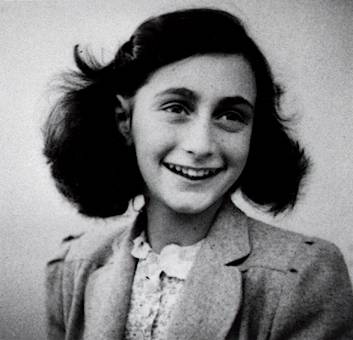Anne Frank's friend recalls struggle for survival
 Amsterdam - Had it not been for her own mother and Edith Frank (the mother of Anne Frank), Frieda Menco-Brommet might not have survived Auschwitz.
Amsterdam - Had it not been for her own mother and Edith Frank (the mother of Anne Frank), Frieda Menco-Brommet might not have survived Auschwitz.
The former radio journalist, now 83 and living in Amsterdam, told the German Press Agency dpa shortly before the Dutch commemoration of Anne Frank's 80th birthday on June 12 that her mother and Anne's mother searched for food together in Auschwitz.
The two women dug a hole in a barracks where they hid the food they subsequently gave their daughters, she said.
Emphasizing that "although I remember sometimes playing with Anne on the street before the war, we were not close then," Menco-Brommet says.
"Anne was four years younger," she adds.
For most Dutch Jews, the encounter with Westerbork from where all Jews were deported to concentration camps in Germany and Poland, was devastating.
Ironically, the Brommet family (Menco-Brommet is Frieda's married name) experienced Westerbork as "heaven on earth."
"In Westerbork, we finally had food," Menco-Brommet says, explaining that the same people who hid her family also starved them and ultimately gave them up to the Nazis.
On September 3, the Franks and Brommets were deported to Auschwitz.
"The Franks kept very much to themselves in the camps," Menco- Brommet said.
"Anne and Margot (Anne's sister) were very close with each other."
At one point, Menco-Brommet's mother and Edith Frank were listed for deportation from Auschwitz. Both mothers hid themselves and continued to hide food in the sick barracks where their daughters were staying.
"This way they fed us," says Menco-Brommet.
She said the two women "always addressed each other as Mrs Frank and Mrs Brommet, hanging on to a last spark of civilization."
Asked about her friendship with Anne, Menco-Brommet remarks that relationships in Auschwitz were reduced to an absolute minimum, as everything focused on bare survival.
"The Frank girls, another friend and I spent substantial time in Auschwitz's sick barrack. But we were incredibly sick and weak. I could not even lift my head, nor sit or walk."
Menco-Brommet's condition was so bad that she has no recollection of Anne and Margot leaving the sick barrack for deportation to Bergen-Belsen on October 28, 1944.
In general, Menco-Brommet says, human contact in Auschwitz expressed itself in small yet essential details.
"Such as people warming each other with their own bodies. Or two French girls who promised to look after me when I - mistakenly - thought my mother had died.
"Also, when I got typhus, a strange woman fed me small pieces of bread, risking her own health. Those are signs of humanity that give hope even today."
On January 27, the Russians liberated Auschwitz, including Frieda and her mother, the only ones of their family to survive.
Anne and Margot Frank died in March 1945 in Bergen-Belsen, one month before the camp's liberation.
Hearing people speak about the Holocaust always gives Menco-Brommet mixed feelings. She feels there is a dividing line between those who experienced Auschwitz and those who have not.
"For the latter, it's a story. But when I hear the name 'Auschwitz,' I see images and I am instantly back in the camp." (dpa)